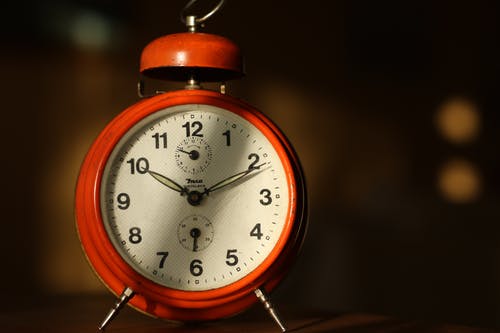- December 2, 2019
- Posted by: admin
- Category: Uncategorized

Here’s a fact: Most of your working life will probably happen after your twenties. You’ll most likely still have more than half left to go after your thirties. And yet there’s this overwhelming sense that you have to predict exactly what career you’ll love right out of the gate, know the precise path you need to follow to get there and be doing it already—successfully—in the first decade of what will hopefully be a very long road.
But what if you don’t? Or what if you do, and then decide later that you want to do something else? Why are we so resistant to the idea of going after something new in our 40s? Or 50s? Or 60s? Or 70s? Or later? The idea feels foreign, maybe a little uncomfortable, in a culture that’s fascinated by child prodigies and constantly manufacturing 30-under-30 lists. But should it be?
Charlotte Clymer says absolutely not. And her answer resonated with thousands. Clymer, a press secretary at the Human Rights Campaign, recently posted a thread to Twitter that went viral—garnering more than 200,000 likes in total and thousands of retweets. “There’s a whole genre of media stories of child prodigies in math or science or chess or sports. We don’t have enough awareness of folks who do start late in life after they’ve been doing something else and go after their dreams because they have the skills to do it.”
So that’s where she begins, kicking off her thread with a story about a psychiatric nurse who left her husband and, while raising her kids, started acting when she was in her 40s. She took classes and hung wallpaper and painted houses to support her family. She became a street performer at Disney World when she was over 50. And it was later still that the world began seeing her in small guest roles on television, and eventually as Mrs. Landingham in The West Wing and Karen McCluskey in Desperate Housewives, a role that earned her two Emmys.
“I bring this up because I hate ageism. I hate the way we strip older folks of their humanity by asserting that they can’t do something, not on the basis of their ability or competence but the date on their birth certificate,” wrote Clymer, who also reminded the Twittersphere that Vera Wang didn’t design clothes until age 40 and Laura Ingalls Wilder didn’t publish a book until age 65.
“I hate ageism. I hate the way we strip older folks of their humanity by asserting that they can’t do something, not on the basis of their ability or competence but the date on their birth certificate.” Charlotte Clymer
“If you love something and you’re willing to put in the work and meet the standards of excellence in an ethical way, why should age ever matter? Telling someone they’re ‘too old’ to do something denies their gifts to the world, and how dare any of us do that,” she wrote. “We should all be so lucky to have that drive and inspiration and reject the naysayers of the world who view dreams as subject to the perceived and arbitrary nature of a number. Stop shaming folks because of age. If they can deliver, honor that. We’re all better off.”
Clymer is only 31, but she served in the military for six years and worked before getting her bachelor’s degree at 30. And she thinks frequently about her grandmother. Like Joosten, she left a troubled marriage and raised her children while she both worked full time and went to school full time, pursuing her bachelor’s degree and then law school. She was still in her mid-20s when she started her undergraduate education in the 1970s, but “back then, the attitudes that women couldn’t do that would’ve been just as prevalent as now when we’re saying that older people can’t,” Clymer says. “There’s this bigotry that’s pervasive.”
But her grandmother, Joosten, Wang, and Ingalls Wilder were all clearly capable. And Clymer has loved seeing the flood of replies and messages from people of all ages who are also starting new careers in academia, nursing, writing, law, and more. “All these people refuse to accept that their age should limit their potential. And there is something really brave and romantic about that.” Charlotte Clymer
“All these people refuse to accept that their age should limit their potential. And there is something really brave and romantic about that,” Clymer says. “We should be more compassionate,” she adds. “If they put in the work and they’re willing to achieve that high standard, that’s really all that should matter.”
So try to be more compassionate toward others who’ve decided they want (and can afford) to try something new, no matter what their age. But try to be kinder to yourself, too. It’s okay if you’re not sure the career you’re pursuing in your twenties or thirties is the one you want forever. It doesn’t have to be the only one you ever have.
Source: https://www.themuse.com/advice/never-too-old-to-change-careers
